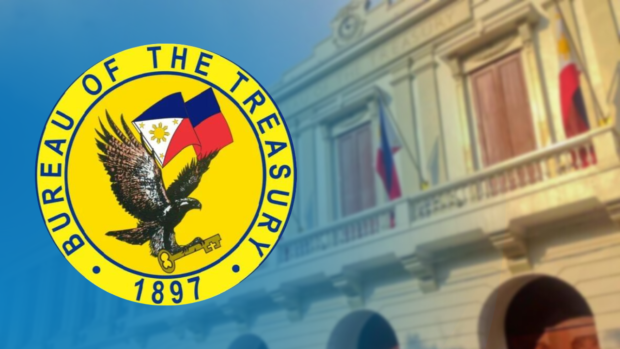MANILA -The national government resorted yet again to a partial award of seven-year Treasury bonds amid expectations that interest rates will remain high for much longer than previously thought.
The auction committee led by the Bureau of the Treasury (BTr) raised only P9.877 billion or barely one-third of its P30-billion offer.
The offer was a reissue of T-bonds first awarded about two months ago, and would expire on July 27, 2030.
The auction held on Tuesday showed an average rate of 6.37 percent, which was 4.2 basis points (bps) higher than the 6.328 percent recorded in the previous auction in July.
“The auction was 1.9 times oversubscribed as total submitted bids amounted to P57.8 billion,” the BTr said in a statement.
With the amount awarded on Tuesday, the total outstanding volume for the series reached P34.7 billion.
At the secondary market, the Philippine Bloomberg Valuation Service tagged corresponding corporate bonds 5.5 bps higher at 6.425 percent.
Also, similar government securities fetched 12.6 bps higher at 6.496 percent.
Michael Ricafort, chief economist at Rizal Commercial Banking Corp., said yields for the seven-year T-bond were kept below secondary market rates amid recent signals that the monthly headline inflation readout will be within the Bangko Sentral ng Pilipinas’ (BSP) target range of 2 percent to 4 percent in the first quarter of 2024.
Ricafort noted that before the August inflation print, which showed an uptick after a downtrend in the six consecutive previous months, the BSP expected inflation to sink into the target range in November or December this year.
In the September issue of the Asian Development Bank’s (ADB) Asia Bond Monitor report, the ADB warned that governments and central banks in emerging East Asia needed to stay vigilant to guard against potential financial risk associated with higher interest rates.
The report found that local currency government bond yields in the Philippines increased for most tenors during the three months from June 1 to Aug. 31.
The ADB said the increase in yields was influenced by the BSP’s hawkish tone amid persistent elevated inflation despite a continued decline since February.
The report added that an increase in yields was also influenced by dampened investor sentiment due to the economy’s slower-than-expected growth of 4.3 percent year-on-year in the second quarter of 2023, down from 6.4 percent. INQ


